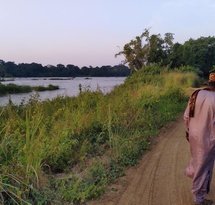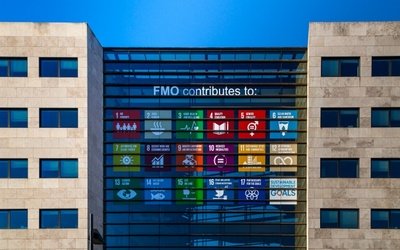
Both ENDS partner IFI Synergy has filed a complaint to the World Bank on behalf of local inhabitants about the Nachtigal dam in Cameroon. The dam is causing considerable problems for local communities and local people feel that the compensation they receive is inadequate. They also feel that they were insufficiently informed and consulted before construction of the dam started.

In a new Position Statement on Financial Intermediary (FI) Lending, Dutch development bank FMO argues for limited responsibility over the outcomes investments that are channeled through commercial banks, investment funds, and other financial intermediaries, representing by far the bigger sector of its portfolio. In doing so, FMO is undermining its development mission, including the protection of human rights and addressing the climate crisis. FMO intends to delegate these key responsibilities to its FI clients only, falling short of best practices of peer financial institutions. In a joint submission prepared by Both ENDS, Oxfam Novib, Recourse and SOMO, we argue that FMO can do much more to ensure the protection of human rights, the environment, and to measure the development impact of its indirect investments.
This letter by Both ENDS to the African Development Bank is a comment written in reaction to a draft version published by the Bank of its Environmental and Social Policy as part of a formal public consultation held by the Bank. This comment was sent to the bank along a joint submission letter with other CSOs, and specifically responds to the overarching Policy.
The bank's flexible requirements for clients and national standards for risky projects dilute safeguards. Project approval should be predicated on specific and binding targets for compliance and reflect input from communities involved.
Together with 29 other CSO's, we've submitted our comments and recommendations in the Public Consultation on the AfDB Integrated Safeguards System. These include that the Bank should prioritize community-led development and human rights-based approaches; protect natural resources and tackles environmental and climate crises; raise the bar on access to information, transparency and accountability; facilitate participatory processes in policies, programmes and projects; and end inequality, poverty, and the cutback and privatization of vital services.
A coalition of NGOs today launched the Financial Exclusions Tracker, a new website that tracks which companies are being excluded by investors and banks for sustainability reasons. Most excluded corporations are barred due to links to fossil fuels, weapons or tobacco.
6 civil society organizations, including Both ENDS have submitted a gender comment on the newly proposed EIB Environmental and Social Framework. The EIB Environmental and Social Standards has to be updated to ensure that due attention to gender specific impacts, risks and related mitigation strategies is integrated in the policy and each standard, as well the assessment needs to specifically address the needs and problems of all genders. A lot of improvements can be made in the integration of gender aspects in policy and standards, in order to prevent violation of the rights of women and girls during project implementation, and tools (widely used by other organisations) and or commitments for their development should be included (inclusive consultations, Gender assessments and analyses, gender impact assessment, Legal Assessment Tool (LAT) for gender-equitable land tenure, gender responsive tools for prevention of violence.
16 civil society organisations including Both ENDS have written a letter of concern to the European Investment Bank about a newly proposed standard for the Bank its intermediate finance investing. Both ENDS contribution to the contents of the joint letter consists out of proposals for improvement of screening, scoping, due diligence, appraisal, monitoring and supervision of high-risk clients and sub-projects. through financial intermediaries and clear and mandatory social, environmental and human rights requirements for FI investing matters.